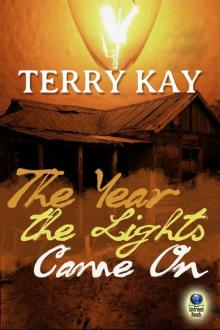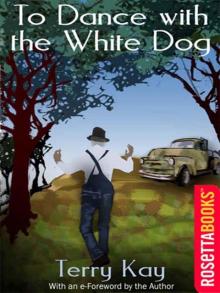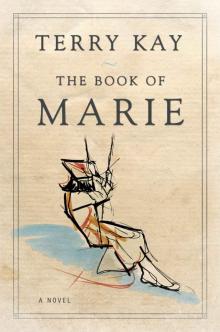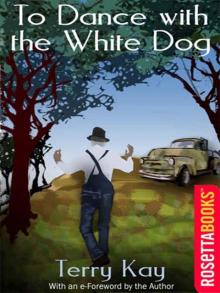Taking Lottie Home Read online
Page 2
“Throw it by him, Nat! C’mon, boy!”
Nat responded by striking out the next batsman on three pitches. There were two outs and two runners still on base.
“One more, Nat!”
“You got ’em, Nat!”
The batter at the plate was tall and powerfully muscled and he had a cocky, daring smirk on his face. Nat wiped his fingers across the front of his jersey, took the ball from his glove, rolled it in his hand, then began his pump-arm windup. His body pivoted over his left foot and his arm snapped in a quick half-circle at his shoulder. The batter lashed at the pitch and a cracking sound, like a flesh slap, spit from his bat. The ball soared toward center field, then began sinking. Foster sat forward on the bench. He saw Ben Phelps moving, sprinting. He saw Ben diving, his left arm extended in front of him, his body off the ground and falling. And, suddenly, there was a shrill cry from the stands and a man yelled, “Great Goda’mighty!” —yelled it like a proclamation—and the Hornets’ players spilled out of their shelter and rushed toward Ben, shouting.
“You got it, Ben! You got it!”
“Great God, Ben, I never saw nothing like that.”
“You done it, Ben! You done it!”
And they were around Ben Phelps, embracing him, pounding him, slapping at him, celebrating him with their awe.
Foster sat and watched. He could feel a bloodrush in his chest. He had known such moments. The great grand slam in Mobile, the triple play in Dayton. God-o-mighty, they had loved him for those feats. They had lifted him over their heads like a trophy and marched him around the field. On the day of the triple play, a newspaper artist had drawn a likeness of him pointing three fingers in the air. And that was the worth of all game, the worth of everything.
Foster turned his face and looked at Arnold the shade of the shelter in his dusty black suit, his arms crossed. Arnold Toeman’s mouth was curled in a half-smile, but he was not smiling. He was laughing, laughing at something only he understood.
A chill seized Foster. He stood at the bench. The team was moving toward him, herding Ben from the field, and Ben was yelping excitedly, touching the hands that reached for him. My God, thought Foster. Ben. It was Ben who would be cut with him. Foster knew it. Knew it with certainty. And it did not matter that Ben Phelps had made an impossible play and was being celebrated. Arnold Toeman had decided: Ben Phelps would be cut from the team.
Foster knew he was right. He had watched too many executions to be wrong. He turned again to Arnold Toeman, and Arnold Toeman was staring at him with warning, with eyes that dared him. Foster sat slowly and laced his fingers over his legs. Son of a bitch, he thought. Ben. Ben would be the second cut. Should have realized it, he reasoned. Ben, who could run, but could not hit. And he had tried. By God, he had tried. But he could not overcome the sickening fear of being struck by the ball. At first, it had been comical, yet there was something about Ben’s failure that was to be pitied, and his teammates had worked patiently with him, urging him. Still Ben could not hit. Still he fell away from the plate.
Ben would be cut, Foster thought again, and it would hurt. It would hurt because Ben and Milo Wade were from the same north Georgia hometown and had played baseball together for years. Yet Ben did not have the skills or the anger of Milo Wade. Ben had a child’s awe, and even his grace in the outfield—the grace of an untamed, running animal—could not save him.
Ben entered the shelter quivering with gladness. He sat beside Foster and Foster mumbled, “Good play, Ben. Good play.”
Ben answered with a slap to Foster’s shoulder. “Didn’t think I’d get to it, but it was there. Didn’t even feel it hit.” Ben was smiling and licking his dry lips with his tongue. He leaned toward Foster. “Maybe that done it for me, Foster,” he confided. “I was telling Milo and Nat I didn’t think I’d make it. Maybe that done it for me.”
Foster nodded. He stared across the playing field and watched the Seagulls complete their warmups. He knew that Ben Phelps’s heroics had inspired his teammates. There was a blood scent of victory in the restless chattering that swirled around him. To Foster, it was the music of operas, and it did not matter that the first two batters lifted weak fly balls to the infield. The music was strong, then grew louder when Jordan Beasley doubled to right field and Milo Wade approached home plate.
Milo Wade was only eighteen years old, yet he played baseball with the command of a man who demanded attention. In only three weeks, he had become the most feared and respected player on the Hornets’ team. In Milo Wade, there was always a possibility, always the simmering hiss of an explosion.
“C’mon, Milo! Get him in!”
“Get a hit, Milo! Get a hit!”
“You can do it, Milo! You can do it!”
Foster listened to the eager young voices, still shrill from childhood. He saw Milo step to the plate. Milo was tall and thin and muscled like a swimmer. His face was intense, his eyes clear and hard, the color of blue under ice. He had a habit of curling his lower lip between the bite of his teeth. He stood at the plate, clawing the ground with his cleated shoes. He lifted the bat and pushed it before him, his hands spread apart on the handle. Foster had never seen anyone stand so far up in the batter’s box, and he had asked Milo why he did it. “That’s for curves,” Milo had explained. “They throw me curves, I get a lick at it before it breaks. It’s nothing but a fastball to me.” Foster had tried it in batting practice, but he could not swing the bat fast enough, and he knew Milo Wade had a rare talent.
“C’mon, Milo, bust it!”
“You got ’im, Milo! You got ’im!”
Milo squeezed his hands on the bat. He looked at the infielders, playing him to hit the ball to right field as they had been taught to play against a left-handed hitter. There was a gap between third base and the third baseman. Milo moved his hands on the bat handle, making a calculation with his fingers.
The pitch was high and outside and Milo slapped it easily, almost casually, guiding the ball two feet inside third base. Jordan Beasley scored and Milo was standing on second base when the left fielder recovered the ball.
“Way to go, Milo!”
“We got it now! We got it now!”
Ben had been in the on-deck circle, still giddy from his catch and wildly waving Milo to second. Now he was walking toward the plate, swinging his bat.
Arnold Toeman spoke: “Phelps.” His voice was deep, blunt. Ben turned. Arnold Toeman was standing beside the shelter, his arms crossed. His dark hat shadowed his dark face.
“Yes sir?” replied Ben.
“Come on in,” commanded Arnold Toeman. He gazed down the bench at Foster. He smiled slightly. “Lanier,” he said, “get a bat.”
Foster knew that Arnold Toeman had ended Ben’s career, that in his grandest moment, a moment that had lifted Ben higher than wings could carry him, he had also been executed. He moved slowly off the bench. And this, too, was his execution, he thought. But there was nothing grand about the moment for Foster. He walked to Ben, took Ben’s bat from him. “You guess it’s got a hit in it, Ben?” he said gently.
Ben’s face trembled. He looked at Foster with a bewildered gaze, asking what Foster already understood.
“It’s all right, Ben,” Foster told him. “It’s not what it’s made out to be, nohow.”
Ben turned to stare at his teammates, now silent in the shelter. They, too, understood. He walked slowly toward them, then stopped and looked across the field at Milo Wade. Milo dropped his head and kicked at the second base bag.
“Phelps, get off the field,” snapped Arnold Toeman.
Foster moved to the plate. Ben and me, he thought. Now they know. Well, goddamn them, they ought to stand up and give us a bow, then they could hang us out on a clothesline to flap in the wind like useless rags. His mind throbbed with rage. He wanted to scream at the strong young men who would return to play another game, “Look, damn it, look. Look at Ben. Look at me.”
He caught the handle of the bat in his hands, curling his fing
ers for the warm feeling of the wood. He looked at the pitcher for the Seagulls, who seemed small and frail. Foster wondered if the pitcher was also on trial, if the manager of the Seagulls had judged and condemned him. He rolled the bat in his hands. A taste of bitterness filled his mouth. The game he had loved with such passion had betrayed him. It had teased him, and now it was taking the last measure he had to give. He glanced back to the shelter. He could not see Ben. Then he looked automatically to Arnold Toeman and he saw Arnold Toeman’s lips barely move, mouthing the word: bunt.
Foster stepped away from the batter’s box. There were two outs. He could not run against a bunt. He knew it. Arnold Toeman knew it. Goddamn it, he thought, swallowing the bitterness in his mouth. His leg was on fire with pain. He reached to rub it. His hand moistened with blood, oozing through his uniform. No, he said to himself. No, goddamn it.
He eased to the plate and tried to set his right leg against the pain. Perspiration rolled from his hair, across his face. He saw the pitcher from the Seagulls balancing in his motion, and he saw the ball spinning toward him. He pushed back on his left leg as the ball exploded into the catcher’s mitt behind him. He heard the umpire bellow the strike call. He shook his head. It couldn’t be, he thought. No. It was inside. A ball. He heard the boy catcher for the Seagulls laugh lightly. He ran his sleeve across his face. Behind him, he heard Arnold Toeman’s snarling voice: “Lanier.”
The pitcher was moving again on the mound, his arm falling forward over his head. Foster saw the ball leave the pitcher’s hand, saw it roll from the fingertips, saw it rising. His mind snapped suddenly clear and he felt his shoulders turning as the bat cut into the air. Then he felt the ball against the bat, solid, jolting, and he heard a chorus of screams from the Hornets’ shelter. The bat was out of his hand and he was limping, dragging, running toward first base, watching the ball rise higher and higher into deep left field. A rush of exuberance chilled Foster. The pain was gone from his leg. And then he saw the left fielder for the Seagulls, a boy, blond as a palomino, running, racing the ball, and he heard the players for the Seagulls whipping their teammate into a final sprint with their boyish cries. Foster slowed near first base. He saw the boy left fielder dive high against the plank fence, saw him juggle the ball as he fell, and then saw him pull it to his chest.
Foster stopped at first base. He touched the bag with his right foot, almost tenderly. He looked around the infield, toward second base. Once, he had played second base with the grace of a god, he thought innocently. He inhaled deeply, filling his lungs with the hot dust of a baseball field, and then he turned and walked away, past Arnold Toeman and out of the ballpark.
TWO
THE TRAIN THAT ran from Augusta to Jericho, then west to Athens and Atlanta and north into Tennessee and Kentucky and finally into Ohio, was scheduled to leave at nine thirty-five in the evening, four hours after the game between the Augusta Hornets and the Savannah Seagulls had ended.
Ben sat in the train station and waited. He was numb weary, his eyes still blurred from the crying that had spewed from him after the game. He had promised Milo that he would stay in Augusta for a few days, but he could not stay. He wanted to leave, to be home. He would tell them at home that he had discovered he did not care for professional baseball, and that he had spoken frankly with Arnold Toeman, the manager, and Arnold Toeman had advised him to follow his conscience, although he would be giving up an almost-certain opportunity.
Milo would not contradict his story. Milo would understand. They had always been friends. Milo would know how he felt. Besides, there was a chance that Milo, too, would fail and return home and he, too, would need the comfort of a secret.
Ben watched the people around him. He wondered where they were going and why, and if any of them had been at the ball game to see the remarkable catch he had made before Arnold Toeman cut him from the team.
No, he thought. None of them had seen him.
Across from him, two children sat with a mother, drawing pencil pictures on tablets. The mother wore the black clothing of a mourner, her eyes vacant.
A man wearing a rumpled suit, a bowler hat tilted over his eyes, slouched against the back of a bench, sleeping.
A man and a girl sat near him. She was young, with hair the color of soft bronze, large, wondering eyes, and the prettiness of an unfolding flower that promised a golden face. There was no youth in the man’s face. Still, they sat close, touching hands, smiling, whispering to one another. The man and the girl seemed suspended in their togetherness and in their aloneness.
Ben pulled from his pocket the watch his father had given him. He snapped it open and looked at it. It was ten minutes after nine. He closed the watch and turned it in his hand, slipping his fingers over the slick, warm metal. His father had advised him not to follow Milo Wade to Augusta. It would be a hard chase, his father had said. And it could be dangerous business. Yet, his father had embraced Ben on the day of his leaving, wishing him well, whispering that he understood. In his youth, Ben’s father had also been an athlete, good enough for people to still talk of his feats, and Ben knew his father would have been pleased if he had become a baseball player. Even more, he would be pleased with Ben’s safe return to Jericho.
He thought of Foster Lanier, wondered if Foster would leave that night for Kentucky. He did not want to see Foster, for Foster would tell him consoling lies.
He pushed his watch back into his pocket and pulled his suitcase nearer to him. His baseball glove was tied by a cord to his suitcase. Ben touched the glove lightly. He could feel the sting of an imaginary baseball against his hand and he could hear the swish of grass beneath his feet. It had been so right, so comfortable, in the outfield of a baseball game. Ben shuddered with hurt. God, he thought, fighting tears. I tried. I tried.
A hand touched his shoulder and Ben turned. It was Milo. Beside him stood Nat Skinner.
“Ben, what’re you doing here?” Milo asked gently. “You said you’d stay a couple of days.”
Ben stood awkwardly. He looked at the crowd in the train station, gathering their belongings for the waiting train. “Yeah,” he mumbled. “I—I thought I’d better get on back home, though. I tried to find you, to tell you.”
“We checked your room. They said you’d left,” replied Milo. “I figured you’d be down here. Me and Nat wanted to take you to supper.”
“On us,” Nat said, smiling.
“Yeah. Uh, I—got me a bite,” Ben lied.
“Look, Ben, I’m sorry it happened,” Milo told him. “It won’t be the same, you not being out there with me.”
Ben reached for his suitcase. He forced a feeble smile. “Shoot, Milo, you got some pros now. Won’t be no need to cover for me like you always had to.”
Milo laughed. “You hear that, Nat? Me cover for Ben? Other way around, if you ask me. Nobody in Georgia’s fast as Ben in the outfield. We been playing together since we was twelve, and I guarantee you he’s the fastest I ever saw.”
“Me, too,” said Nat. “Never saw nothing like that play you made today, Ben.”
“Takes more than being fast,” Ben said. “Anyhow, it don’t make much difference. I had my fun trying it. Tell you the truth, I’m kind of glad it happened. I got me a pretty good job lined up back home.”
“Doing what?” asked Milo with surprise.
“Clerking in the dry goods store,” answered Ben. “Mr. Ledford offered me the job before I left. Him and Daddy’s big friends. He told me George Hill was quitting to go to school over in Athens.”
“That’s a good job,” Milo said. “Mr. Ledford’s a good man. You better keep your eye out for me, Ben. I may be joining you in a few weeks.”
Ben did not reply. He began to move into the flow of the crowd, staying close to the young girl and man. Milo and Nat followed him.
“You give my best to your folks, Ben,” Milo said.
“Yeah, I will, I will,” Ben stammered. “Train’s about ready to leave.”
Nat offered Ben his hand.
“I’m glad I got to meet you, Ben Phelps, and to play some ball with you.”
“Same here, Nat. Good luck.” Ben’s voice was weak and unsteady.
“Ben, we’re friends,” Milo whispered. “I reckon I just got lucky.”
Ben could hear the noise of the train building steam and the light, happy voices of its passengers. He could feel Milo’s hand tighten on his arm. He was crying, but he was no longer ashamed.
“We had some good times, Ben,” Milo said softly. “C’mon, Ben—”
“I’m not crying because I was cut,” Ben blurted. “It’s—it’s knowing I’m not gone be there to see you make it.”
“Ben, I’m not going nowhere but Augusta.”
Ben shook his head. “You wrong. You going places nobody’s ever been.”
The steam from the train whistled its restless warning. A rough-dressed man pushed between Ben and Milo, rushing along the train, peering into windows, calling in a loud voice, “Lottie! Lottie!”
“I’ll be keeping up with you, Milo,” Ben said. “I promise.” He turned quickly and took the steps leading into the train. He did not look back, but he heard Milo’s voice: “I’ll be seeing you, Ben.”
The train began its crawl away from the station.
“I don’t see him,” Nat said, searching the windows.
“You won’t,” Milo replied evenly. “He’ll stay out of sight until they’re out of the station.”
“I feel sorry for him,” Nat said.
For a moment, Milo did not speak. The piercing squeal of metal curled in the air and the train’s smoke rolled ghostly over the station.
“Me, too,” Milo said at last. “But he just wadn’t good enough. He never was. I just couldn’t tell him.”
BEN SAT ALONE on a back seat in the last car of the train, across the aisle from the girl and the man he had watched in the train station. He stared at the night through a window that reflected him grotesquely, like a mirror of moving water. He ached. The train was loud and brutal. It was not delivering him home; it was removing him from all that mattered. The night flickered before him from behind the window. In the window he saw again the ball screaming off the bat and spinning crazily downward behind second base. He felt his legs moving and the lightness of his feet as he sprinted, leaning forward, already in the dive. And then, from a spectator’s distance, in the astral projection of a vision realized, he saw himself in flight—off the ground, suspended—with his left arm thrust forward and his glove open like a mouth.

 The Year the Lights Came On
The Year the Lights Came On To Dance With the White Dog
To Dance With the White Dog The Book of Marie
The Book of Marie After Eli
After Eli To Dance with the White Dog: A Novel of Life, Loss, Mystery and Hope (RosettaBooks into Film)
To Dance with the White Dog: A Novel of Life, Loss, Mystery and Hope (RosettaBooks into Film)